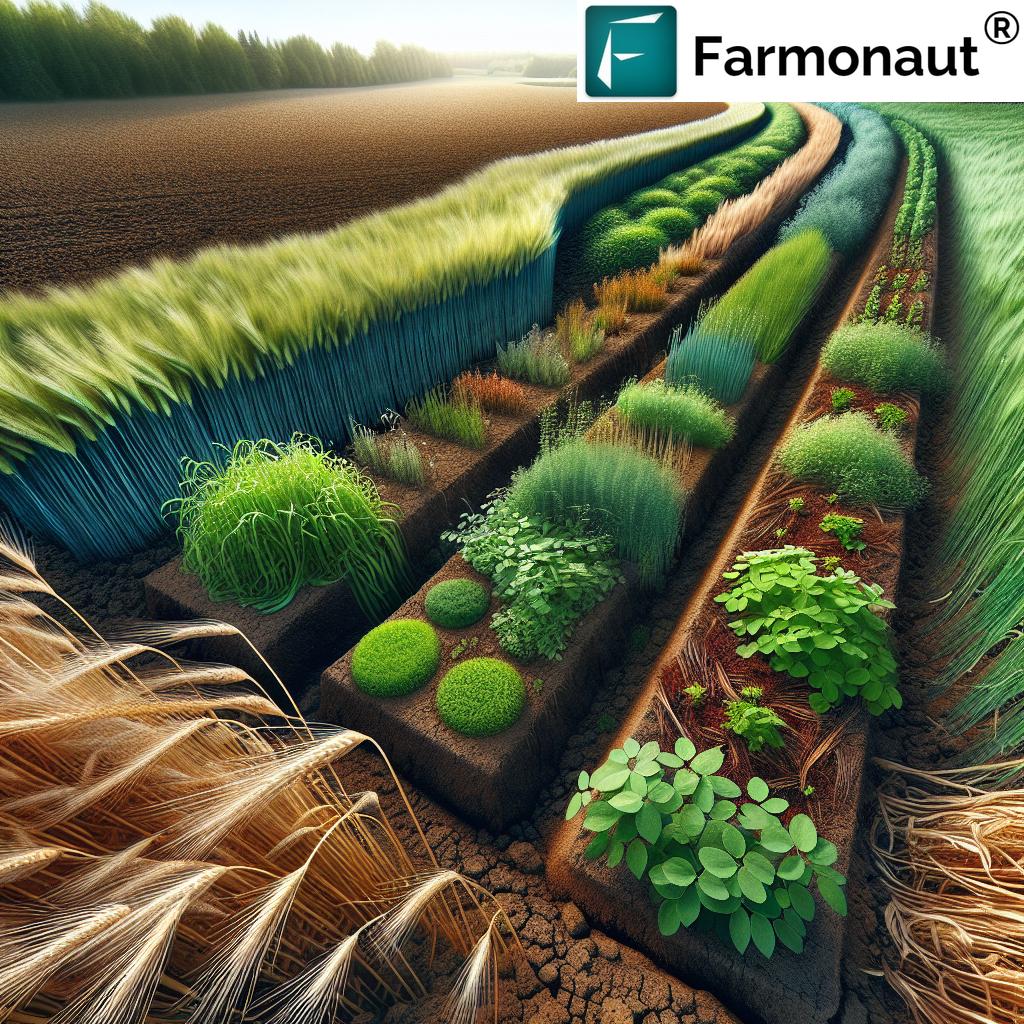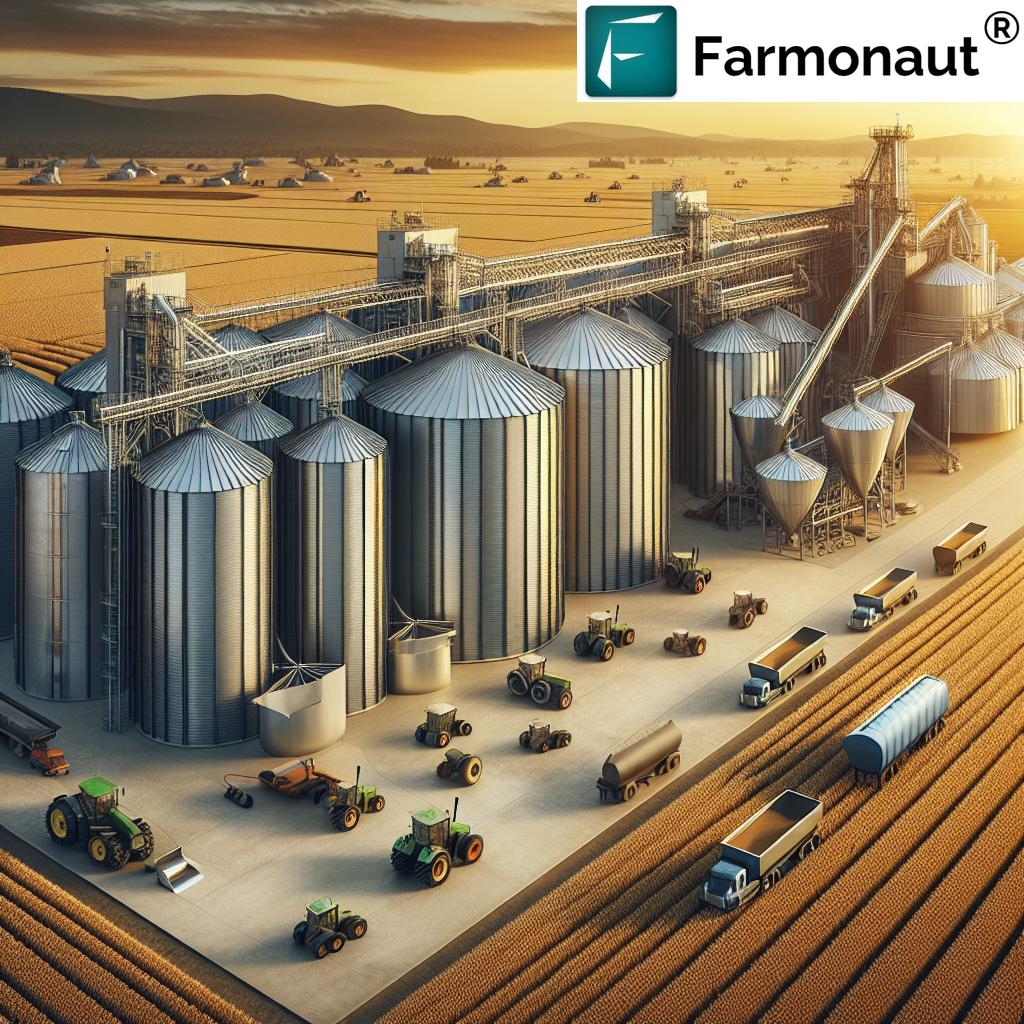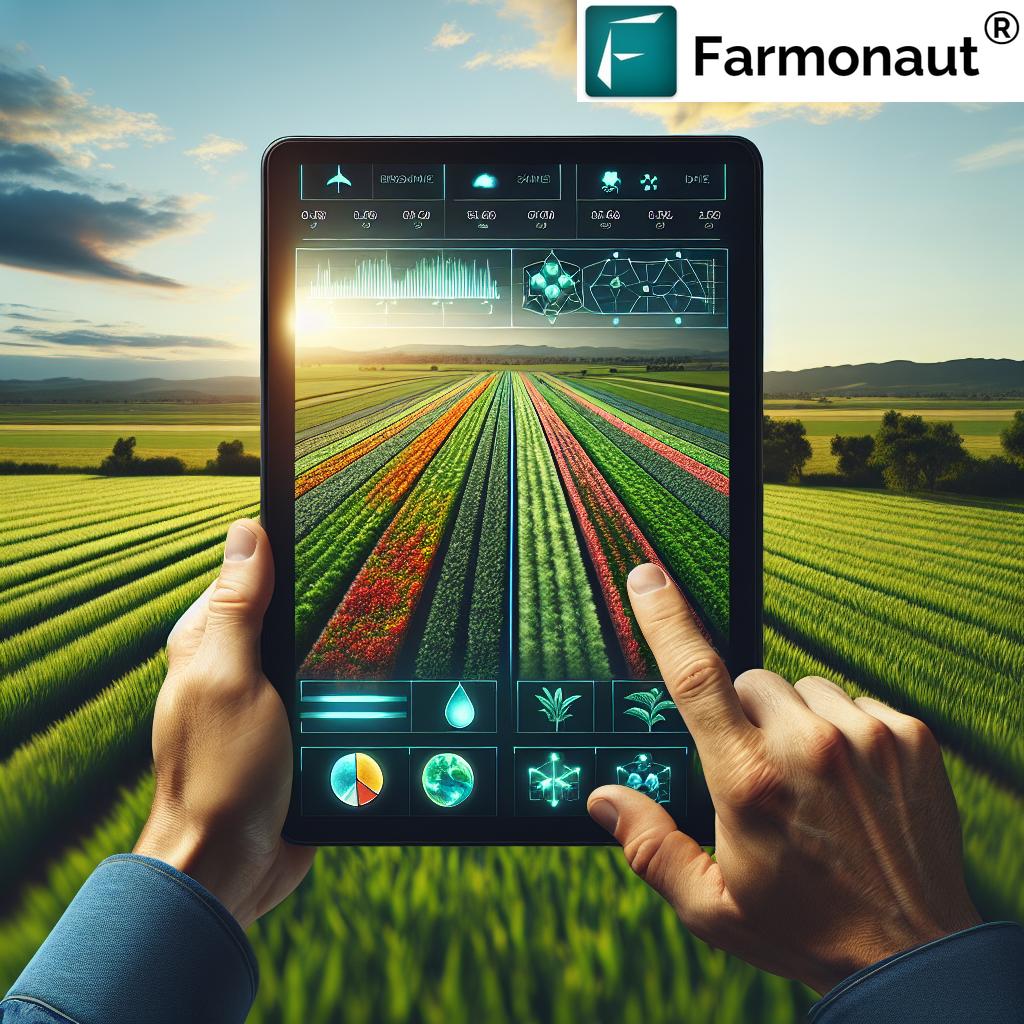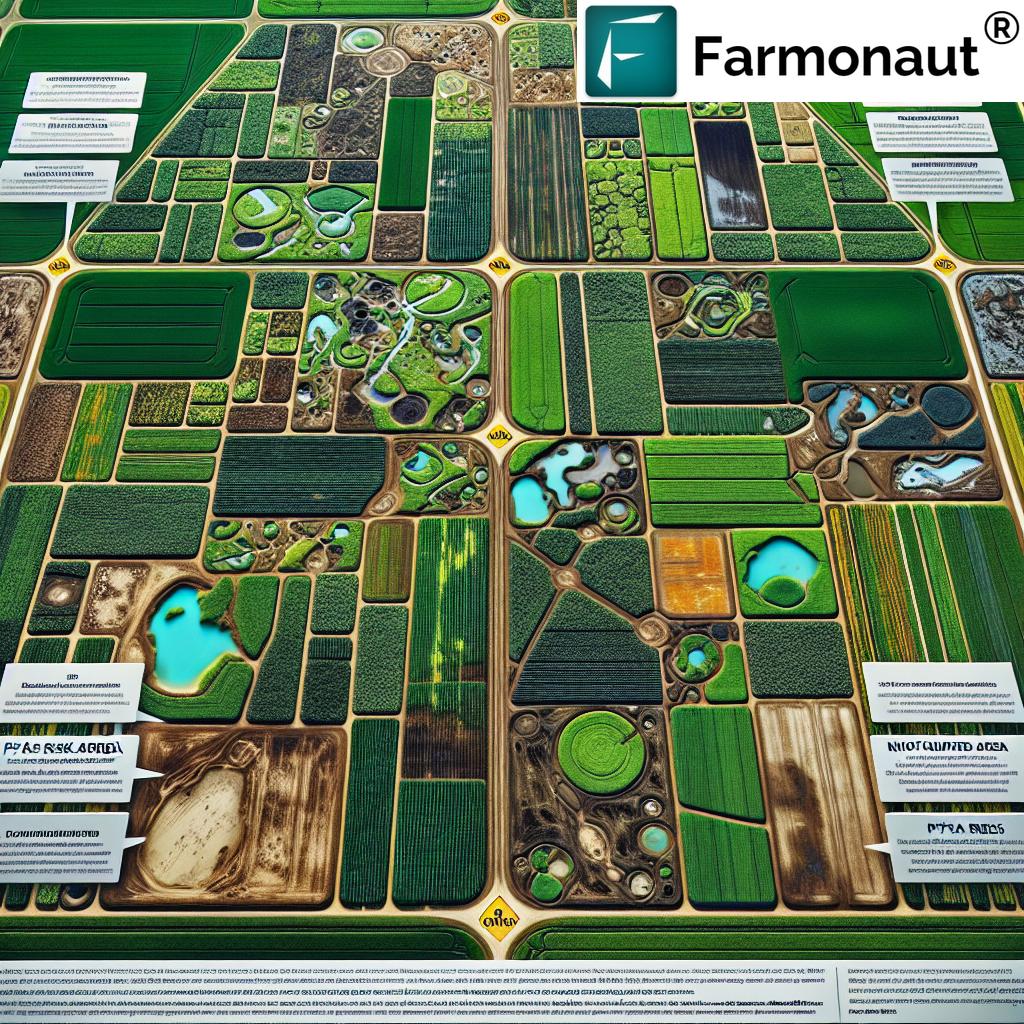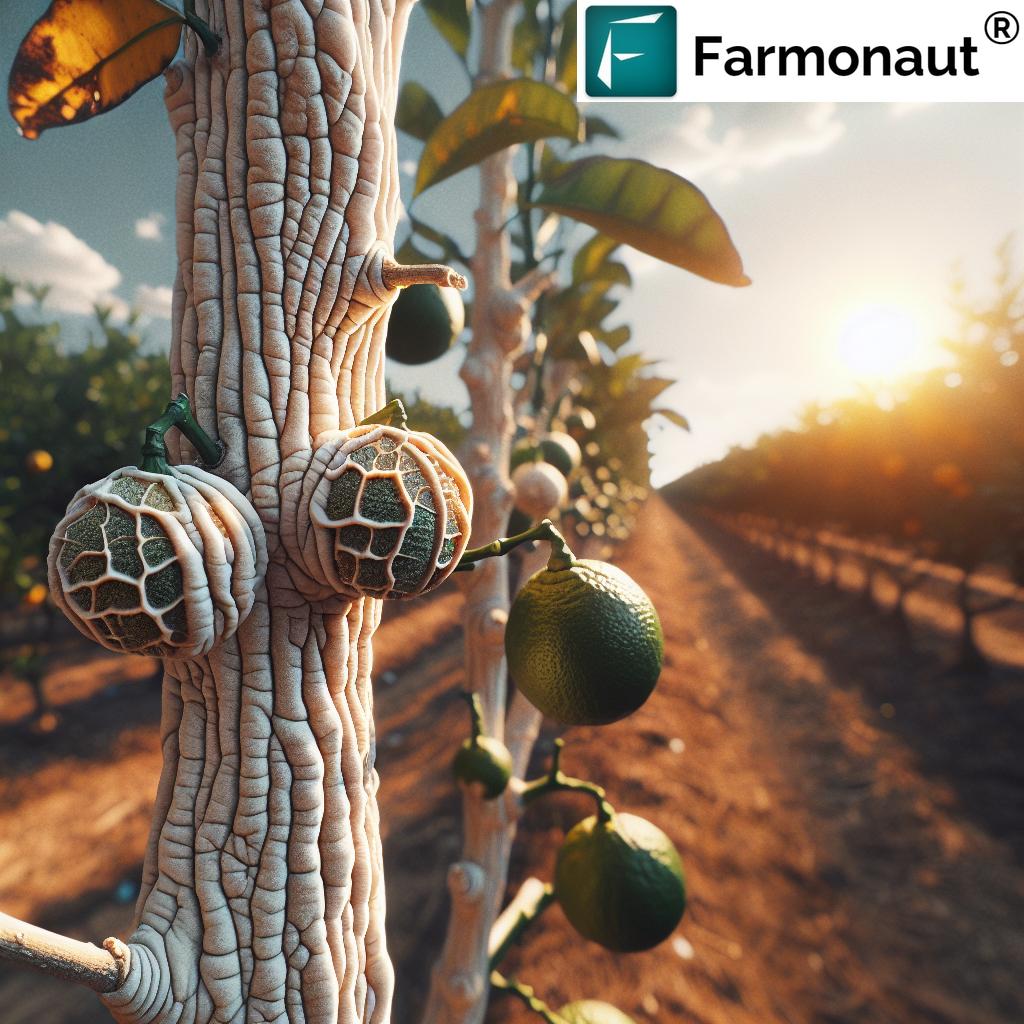2024 Food Trends: Buckwheat, Botanicals, and Global Flavors Shaping the Future of Healthy Eating
“By 2024, buckwheat, a gluten-free grain rich in antioxidants and fiber, is predicted to dominate menus and product shelves.”
As we step into 2024, the culinary world is buzzing with excitement about the emerging food trends that are set to revolutionize our plates and palates. At Farmonaut, we’re always at the forefront of agricultural innovation, and we’re thrilled to explore how these trends will shape the future of healthy eating. From the rising star of buckwheat to the allure of botanical ingredients and the global pepper renaissance, we’re witnessing a shift towards more health-conscious, globally-inspired foods that are not only delicious but also nutritious.
In this comprehensive guide, we’ll delve into the top 2024 food trends, examining their impact on consumer preferences, product development, and agricultural practices. We’ll also explore how Farmonaut’s advanced agricultural technology can help farmers and food producers adapt to these trends by optimizing crop yields and quality. So, let’s embark on this flavorful journey and discover how these trends could transform your approach to food and farming.
1. Buckwheat: The Gluten-Free Superhero
Buckwheat is poised to take center stage in 2024, emerging as a powerhouse ingredient that caters to both health-conscious consumers and those with gluten sensitivities. Despite its name, buckwheat isn’t related to wheat at all – it’s actually a seed that’s closely related to rhubarb.

Buckwheat Benefits
- Gluten-Free: Perfect for those with celiac disease or gluten sensitivity
- Rich in Antioxidants: Particularly rutin, which supports heart health
- High in Fiber: Promotes digestive health and helps maintain steady blood sugar levels
- Complete Protein: Contains all nine essential amino acids
- Prebiotic Properties: Supports gut health by feeding beneficial bacteria
As consumers become more health-conscious, the demand for buckwheat is expected to soar. Food manufacturers are already incorporating buckwheat into a variety of products, from gluten-free flour alternatives to innovative snacks and breakfast cereals.
Culinary Applications
Buckwheat’s versatility in the kitchen is truly remarkable. Here are some ways we’re seeing it used:
- Buckwheat Flour: Used in pancakes, waffles, and bread for a nutty flavor and gluten-free option
- Whole Groats: Cooked like rice or quinoa for a hearty side dish
- Soba Noodles: Traditional Japanese noodles made from buckwheat flour
- Kasha: Roasted buckwheat groats, popular in Eastern European cuisine
- Buckwheat Tea: Made from roasted buckwheat kernels, offering a caffeine-free alternative
At Farmonaut, we’re excited about the potential of buckwheat as a crop. Our satellite-based crop health monitoring system can help farmers optimize their buckwheat yields, ensuring a steady supply to meet the growing demand. By leveraging our API, farmers can access real-time data on soil moisture, vegetation health, and other critical metrics to make informed decisions about their buckwheat crops.
2. Botanical Boom: Nature’s Flavors and Functions
The year 2024 is set to see a surge in the use of botanical ingredients in food and beverages. This trend reflects a growing consumer interest in natural, plant-based products that offer both flavor and potential health benefits.
Popular Botanical Ingredients
- Herbs: Rosemary, thyme, basil, and sage are being used not just for flavor but also for their antioxidant properties
- Flowers: Lavender, rose, and elderflower are adding delicate flavors and visual appeal to dishes
- Roots: Turmeric, ginger, and maca are prized for their potential anti-inflammatory and energy-boosting properties
- Berries: Goji, acai, and elderberries are being incorporated for their high antioxidant content
These botanical ingredients are finding their way into a wide range of products, from teas and flavored waters to snacks, baked goods, and even alcoholic beverages. The appeal lies not just in their natural origins but also in the unique flavors and potential wellness benefits they offer.
Wellness-Oriented Food Products
The integration of botanicals into food products aligns perfectly with the growing trend of functional foods – products that offer benefits beyond basic nutrition. We’re seeing an increase in:
- Herbal teas claiming to boost immunity or aid relaxation
- Snack bars infused with adaptogenic herbs like ashwagandha or rhodiola
- Beverages enhanced with flower essences for mood elevation
- Baked goods incorporating herbs and spices for both flavor and health benefits
For farmers and food producers looking to capitalize on this trend, Farmonaut’s technology can be invaluable. Our AI-based advisory system, Jeevn AI, can provide personalized recommendations for cultivating these botanical ingredients, taking into account factors like soil composition, climate conditions, and market demand.
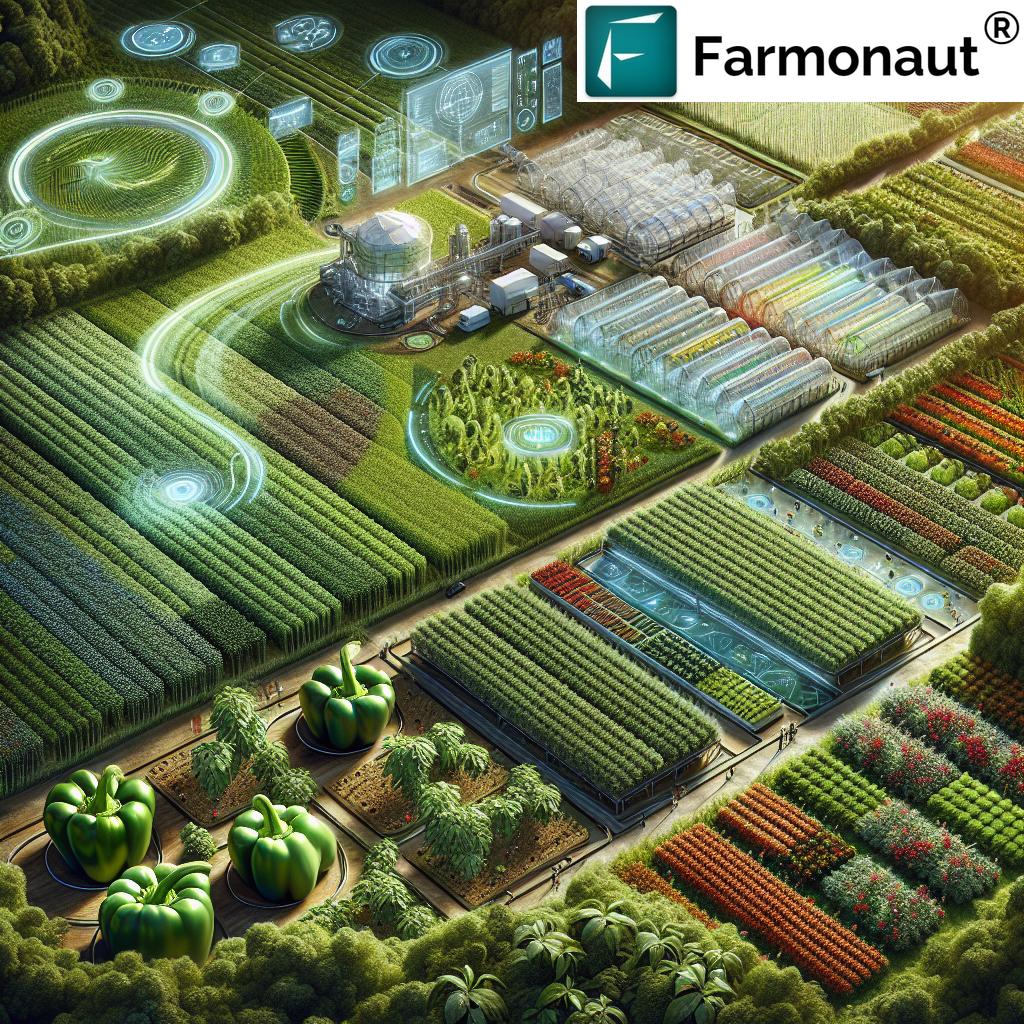
“Global pepper varieties are expected to be among the top 5 food trends in 2024, adding diverse flavors to dishes.”
3. Functional Caffeine: Energy with Benefits
As we move into 2024, the demand for functional caffeine products is set to skyrocket. Consumers are no longer satisfied with a simple energy boost; they’re looking for caffeinated beverages and foods that offer additional health benefits.
Trend Characteristics
- Enhanced Nutrition: Caffeine products enriched with vitamins, minerals, and other beneficial compounds
- Natural Sources: Preference for caffeine from natural sources like green tea, guarana, and yerba mate
- Controlled Release: Products designed to provide sustained energy without the crash
- Cognitive Benefits: Formulations that claim to enhance focus, memory, and overall brain function
This trend is giving rise to a new generation of energy drinks, coffees, teas, and even snacks that promise more than just a quick pick-me-up. We’re seeing products that combine caffeine with adaptogens, nootropics, and other functional ingredients to create holistic energy solutions.
Product Innovation
Some exciting developments in the functional caffeine space include:
- Coffee beans infused with vitamins and minerals during the roasting process
- Tea blends that combine caffeine with calming herbs for balanced energy
- Energy bars and gels fortified with caffeine and electrolytes for athletes
- Sparkling waters with natural caffeine and added functional ingredients
At Farmonaut, we recognize the potential impact of this trend on agricultural practices. Our satellite-based monitoring can help coffee and tea farmers optimize their crops for quality and yield, ensuring a steady supply of high-grade caffeine sources. Additionally, our blockchain-based traceability solutions can provide transparency in the supply chain, allowing consumers to trace their caffeine products back to the source.
4. Plant-Based Whole Foods: Back to Basics
While plant-based alternatives have been trending for years, 2024 is expected to see a shift towards whole, minimally processed plant foods. Consumers are becoming more discerning, seeking out plant-based options that are not only meat-free but also wholesome and nutritious.
Key Aspects of this Trend
- Whole Ingredients: Focus on recognizable, single-ingredient foods
- Minimal Processing: Preference for foods that are as close to their natural state as possible
- Nutrient Density: Emphasis on foods that pack a nutritional punch
- Sustainability: Increased interest in environmentally friendly food choices
This trend is driving innovation in product development, with companies creating plant-based whole food products that cater to health-conscious consumers while still offering convenience.
Product Examples
- Vegetable-based pasta made from single ingredients like lentils or chickpeas
- Snack bars composed entirely of nuts, seeds, and dried fruits
- Plant-based meat alternatives made from whole foods like jackfruit or mushrooms
- Dairy-free milk alternatives with short, simple ingredient lists
For farmers looking to capitalize on this trend, Farmonaut’s technology can be a game-changer. Our API Developer Docs provide access to critical data that can help optimize the cultivation of plant-based whole food ingredients. From monitoring soil health to predicting optimal harvest times, our tools can help ensure the highest quality crops for this growing market segment.
5. Global Pepper Varieties: Spicing Up Culinary Diversity
As consumers become more adventurous in their culinary explorations, 2024 is set to see a surge in the popularity of global pepper varieties. This trend reflects a growing appreciation for diverse flavors and a desire to experience authentic tastes from around the world.
Pepper Varieties to Watch
- Sichuan Peppercorns: Known for their unique numbing sensation
- Aleppo Pepper: A mild, fruity chili from Syria
- Grains of Paradise: A West African pepper with notes of cardamom and citrus
- Urfa Biber: A Turkish pepper with a smoky, raisin-like flavor
- Piment d’Espelette: A mild chili from the Basque region of France
These unique peppers are finding their way into various products, from gourmet spice blends to pepper-infused oils, sauces, and even chocolates. The trend is not just about heat, but about exploring complex flavor profiles and regional culinary traditions.
Culinary Applications
Chefs and food manufacturers are incorporating these global pepper varieties in innovative ways:
- Artisanal hot sauces featuring single-origin peppers
- Pepper-infused beverages, including cocktails and non-alcoholic drinks
- Snack foods with unique pepper blends for bold, exotic flavors
- Gourmet seasoning blends highlighting specific pepper varieties
At Farmonaut, we’re excited about the potential of this trend to diversify agricultural practices. Our satellite-based crop monitoring can help pepper farmers around the world optimize their yields and quality, regardless of the specific variety they’re growing. By leveraging our technology, farmers can ensure they’re producing the high-quality peppers that this trend demands.
Farmonaut’s Role in Shaping 2024 Food Trends
As these exciting food trends unfold in 2024, Farmonaut is poised to play a crucial role in supporting farmers and food producers in adapting to these changes. Our advanced agricultural technology offers several key benefits:
- Crop Optimization: Our satellite-based crop health monitoring system helps farmers maximize yields and quality for trend-driven crops like buckwheat, botanicals, and specialty peppers.
- Data-Driven Decisions: With access to real-time data on soil health, weather patterns, and crop performance, farmers can make informed decisions to meet market demands.
- Sustainable Practices: Our technology promotes resource efficiency, aligning with the growing consumer demand for sustainably produced foods.
- Supply Chain Transparency: Our blockchain-based traceability solutions can help build consumer trust by providing transparency from farm to table.
By leveraging Farmonaut’s technology, farmers and food producers can stay ahead of these trends, ensuring they’re well-positioned to meet the evolving demands of the market.
2024 Food Trends Comparison Table
| Trend | Health Benefits | Culinary Applications | Estimated Market Growth | Farmonaut’s Role |
|---|---|---|---|---|
| Buckwheat | Gluten-free, high in antioxidants and fiber | Flour, groats, noodles, tea | 15-20% | Optimize buckwheat crop yields and quality |
| Botanicals | Various, including antioxidant and anti-inflammatory properties | Teas, flavored waters, snacks, baked goods | 10-15% | Provide data for optimal cultivation of herbs and flowers |
| Functional Caffeine Products | Enhanced energy, potential cognitive benefits | Coffee, tea, energy drinks, snacks | 20-25% | Monitor coffee and tea crops, ensure supply chain transparency |
| Plant-based Whole Foods | High in nutrients, minimally processed | Vegetable-based pasta, whole food snacks, plant-based meats | 15-20% | Optimize cultivation of plant-based ingredients |
| Global Pepper Varieties | Varied, may include anti-inflammatory properties | Spice blends, sauces, infused products | 10-15% | Support global pepper farmers with crop monitoring |
Conclusion: Embracing the Future of Food
As we look ahead to 2024, it’s clear that the food industry is undergoing a significant transformation. From the rise of buckwheat and botanical ingredients to the exploration of global flavors and the demand for functional foods, these trends reflect a growing consumer interest in health, sustainability, and culinary diversity.
At Farmonaut, we’re committed to supporting farmers and food producers as they navigate these changes. Our advanced agricultural technology provides the tools and insights needed to optimize crop yields, ensure quality, and meet the evolving demands of the market. By embracing these trends and leveraging cutting-edge technology, we can work together to create a more sustainable, healthy, and diverse food system for the future.
As we continue to innovate and adapt to these exciting food trends, we invite you to join us on this journey. Whether you’re a farmer looking to optimize your crops, a food producer seeking to develop trend-driven products, or simply a food enthusiast eager to stay ahead of the curve, Farmonaut is here to support you every step of the way.
FAQ Section
Q1: How can Farmonaut help farmers adapt to these 2024 food trends?
Farmonaut offers advanced satellite-based crop monitoring, AI-driven advisory systems, and blockchain-based traceability solutions. These tools help farmers optimize yields, make data-driven decisions, and ensure transparency in the supply chain, all of which are crucial for meeting the demands of emerging food trends.
Q2: What is the significance of buckwheat in the 2024 food trends?
Buckwheat is emerging as a key trend due to its gluten-free nature, high nutritional value (rich in antioxidants and fiber), and versatility in culinary applications. It caters to the growing demand for healthy, allergen-friendly alternatives in the food industry.
Q3: How are botanical ingredients influencing food trends?
Botanical ingredients are gaining popularity due to their natural origins, unique flavors, and potential health benefits. They’re being incorporated into a wide range of products, from teas and flavored waters to snacks and baked goods, reflecting consumer interest in natural, plant-based products.
Q4: What role does Farmonaut play in promoting sustainable farming practices?
Farmonaut’s technology promotes sustainability by helping farmers optimize resource use, reduce waste, and make data-driven decisions. Our satellite monitoring and AI advisory systems enable more efficient farming practices, aligning with the growing consumer demand for sustainably produced foods.
Q5: How can food producers leverage Farmonaut’s technology for product development?
Food producers can use Farmonaut’s data insights to inform their product development strategies. Our crop monitoring and market trend analysis can help identify high-quality ingredients and emerging flavor profiles, enabling producers to create innovative products that align with consumer preferences.






